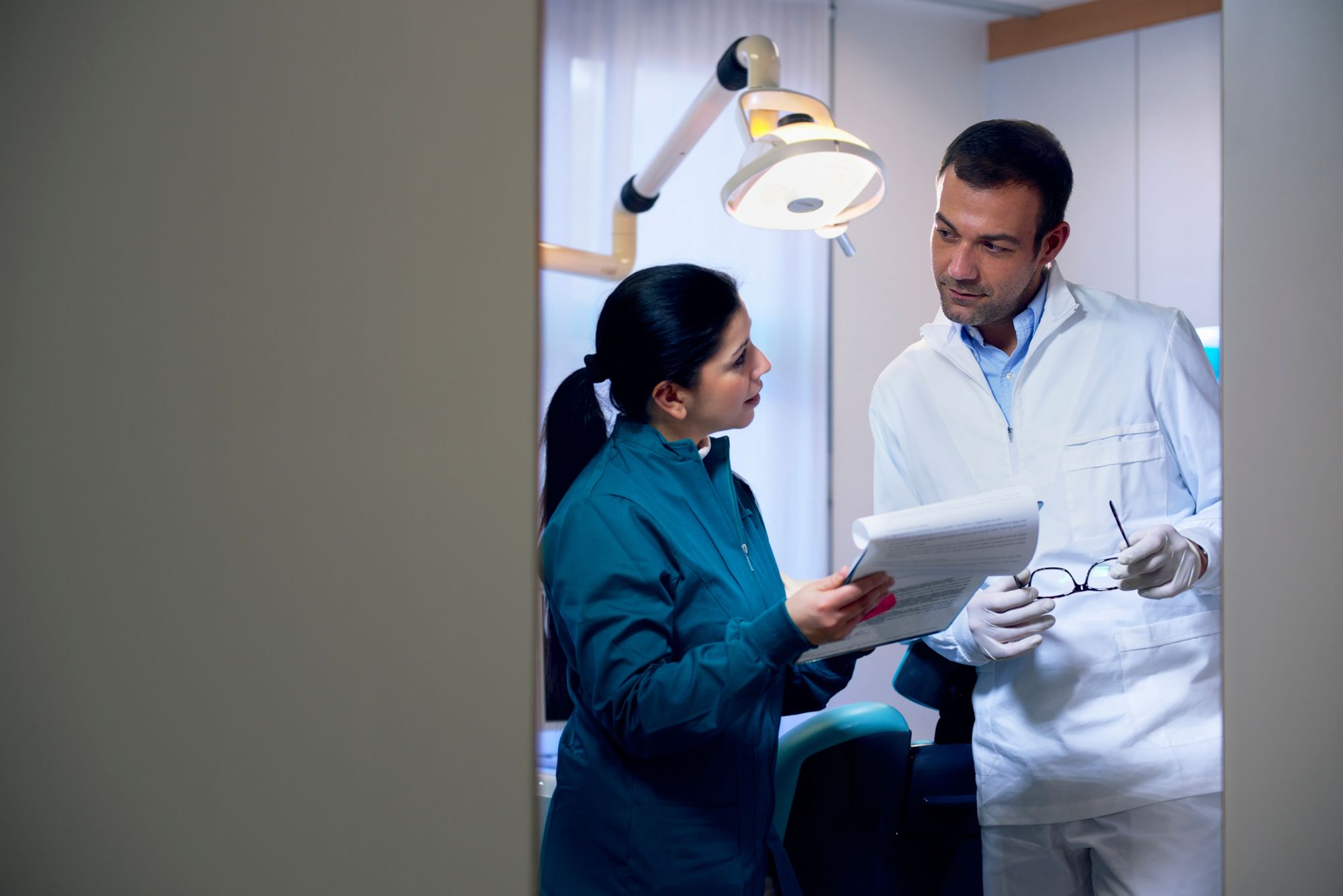She knows where the bodies are buried! What a disturbing image to start off with, but it is the truth. I had the pleasure of interviewing Valerie Lewis, an RDH from Texas, about her 20-year career as a dental hygienist. She had some very strong feelings about the industry and wanted to have a platform to share her thoughts and be a voice for those still in the trenches.
Greed: There are some dentists who are driven to make money and increase production at all costs. She worked at a practice where a patient (we will call Mary) was pregnant and was pressured and bullied by the doctor to have an x-ray. It wasn’t an emergency. Mary didn’t want the x-ray but felt such pressure that she succumbed to it. After the x-ray, Mary was completely hysterical. When Valerie lost her temper about the situation, she was reprimanded, and cotton pliers were thrown at her over this. Seriously, throwing tools is assault and is never acceptable in a practice.
There is a lot of fear to speak up when you see something that isn’t right. If you just quit, you can get blacklisted in this industry, and your career in dentistry can end. We all know that having references is critical to getting that next position. This is unfortunately another reason to stay quiet.
Substance Abuse/Dependency: Valerie has seen a lot of concerning behavior in her time. What concerned her and led to her retiring was her dentist having a drinking problem. Dr M was an alcoholic. He would smell up the operatory with wine from the night before. His hands would shake as he gave injections to patients and explained it away as having had too much caffeine that day. Valerie stayed at the practice for 2 years and felt she didn’t have a choice. As a single parent, she lived in a desert with no dental offices. She loved being an RDH, and didn’t want to leave, but felt helpless with few choices.
Every day, dental professionals are faced with a variety of issues inside and out of the operatory. In a changing and often-stressful world, it can be difficult to maintain the kind of professionalism that patients expect from their clinician. In the face of these changes, there are effective ways to navigate personal and professional trials–it’s just about finding them.
Master's level social worker supervisor and dental practice recruiter, Lisa Newburger, LISW-S, is offering key insights and advice for dental professionals ranging on a variety of topics. With a focus on reaching personal and professional goals, Lisa hopes to guide dental professionals on how to be the best version of themselves.
Have questions for Lisa? Reach out at diana2@discussdirectives.com and your question may be answered on dentalproductsreport.com.
This is frightening. Prior to the pandemic, RDAs felt disposable and easily replaced. Things have changed with the staffing challenges now, but this was how it was.
Dr M eventually had a car accident driving under the influence. The board was supposed to be notified, but Valerie wasn’t sure that happened. She quit when Dr M drilled into the floor of a patient’s mouth. She couldn’t be quiet anymore, so she reported Dr M to the dental board and was fired.
What you can do:
- Have meetings for all staff and create a safe environment for improving communication between the doctors and the staff.
- Have a union to advocate for this vulnerable population resulting in happier assistants and better pay.
- Provide substance abuse education regarding the signs and symptoms of addiction. Drug screening can be implemented as needed. There is a terrible liability to the patient if something goes sidewise.
- Have a better reporting system across the board. Subordinates are afraid to report what they see. What can be done to improve this?
Remember that we are dealing with human beings. They are not inanimate objects. You have risk for liability if you harm someone, not just financially, but ethically. I so appreciate Valerie speaking up for her peers who can’t. Remember, seeing things and reporting makes a difference even when you feel powerless.
Email me at diana2@discussdirectives.com and share your experiences with me that have been good or bad. Speaking to someone you trust is the first step to making a change.
